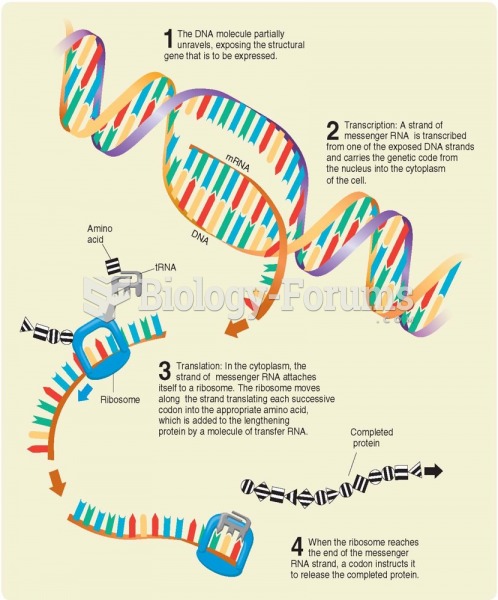|
|
|
Vaccines cause herd immunity. If the majority of people in a community have been vaccinated against a disease, an unvaccinated person is less likely to get the disease since others are less likely to become sick from it and spread the disease.
Stroke kills people from all ethnic backgrounds, but the people at highest risk for fatal strokes are: black men, black women, Asian men, white men, and white women.
Acetaminophen (Tylenol) in overdose can seriously damage the liver. It should never be taken by people who use alcohol heavily; it can result in severe liver damage and even a condition requiring a liver transplant.
Although not all of the following muscle groups are commonly used, intramuscular injections may be given into the abdominals, biceps, calves, deltoids, gluteals, laterals, pectorals, quadriceps, trapezoids, and triceps.
The first oral chemotherapy drug for colon cancer was approved by FDA in 2001.
 Abdominal Assessment Landmarks. When describing pathology of the abdomen, it is useful to use theses
Abdominal Assessment Landmarks. When describing pathology of the abdomen, it is useful to use theses
 The upper panel shows that scores of four diverse samples of boys on a moral reasoning test show a ...
The upper panel shows that scores of four diverse samples of boys on a moral reasoning test show a ...





